 |
 |
 |
| Jack Thomas John Gilbert |
Frank Louis Wolheim |
Marjorie Leila Hyams |
 |
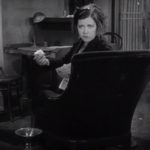 |
 |
| Ruth Anita Page |
Mabel Marie Prevost |
Florio John Miljan |
| Released by MGM | Directed by Mervyn LeRoy Run time: 90 minutes |
||
Proof That It’s a Pre-Code Film
- A bootlegger tells his skeptical brother, who’s sniffing a bottle, “That stuff ain’t cut, that’s what we use ourselves!”
- “Did you know that’s grounds for divorce? Just tell the judge ya ain’t got no control over your fanny, and you’ll get rid of her!”
Gentleman’s Fate: What a Dumb Life
“Bumpin’ each other off, where does it get us?”
“A bunch of swell funerals.”
There are three gangster films that are well remembered from the pre-Code era. Gentleman’s Fate is not one of them. There’s a number of electric elements in the film, but it doesn’t have that jolt that kicks it into greatness– it’s too content to linger in the rain, weeping at its own self-inflicted wounds.
The movie opens with playboy Jack (Gilbert) walking on air. He’s burning his little black book and marrying socialite Marjorie (Hyams). Jack grew up thinking he was a wealthy orphan, but a meeting with his guardian reveals the truth– he’s the youngest son of a bootlegger whose mother had wanted him to have a life outside of crime. The bootlegger has been shot and is slowly dying, and Jack’s older brother, Frank (Wolheim), runs the family business. Jack slowly gets drawn into this world as his engagement unwinds and he sinks further into the underworld. He kills a man to save his brother’s life– and an all out gang war looms, with a target firmly on Jack’s back.
You have to feel bad for Jack. An orphan who suddenly finds his family, he lets his goodness take over. He can’t reject them, even if it’s easy, and staying with them forces Marjorie out of his life. That breaks him, mentally. He sticks in the racket waiting for her to return– after all, he’s still a gentleman, even if he’s a rumrunner. Even if he’s killed a man. Even if he falls in love with another woman.
That being said, the main weakness here is the film’s story arc. Jack has such a dumb, dumb life. He doesn’t grow, really, instead being forced into a bad situation, and constantly rolling with it. He embraces a life in crime out of a need to, thinking somehow that CRIME + ? = MARJORIE RETURNS. Late in the film, when Anita Page’s floozie enters the picture (she’s the ex-girlfriend of the man he killed, which isn’t creepy at all), Jack is compensating for losing Marjorie by marrying her. He’s going full Vertigo on the poor girl, and the movie has the indecency to take him at face value while he does it.
The upside is how the film develops the relationship between Jack and Frank. It’s clear that Louis Wolheim and John Gilbert share nothing in terms of looks (which the movie gets some mileage out of), but their chemistry is a lot of fun to watch. Outside a brawl early in the film, the two men come to a very quick understanding of one another. Even though Jack is a gentleman and Frank is a hood, both respect each other’s intelligence and skills. They become brothers very quickly, and watching the two actors– Gilbert tortured, Wolheim assured but paternal– is a pleasure.
Outside of that main relationship, director Mervyn LeRoy puts a lot of character into the film to a good effect. The dilapidated hotel that houses the bootlegging racket is seedy Marie Prevost’s Mabel is a comic relief wonder, squeaky and annoying but loyal and smart as called for. To a lesser degree is Anita Page who comes in near the end with hope in her eyes and not much else. Both actresses had been stars only a few years earlier, but, of the two, Prevost is the only one who really shows why she was.
LeRoy, who certainly got hired by MGM for this after his success with Little Caesar, infuses some great energy and atmosphere into the film. But we all just want to talk about John Gilbert, don’t we? Already publicly castrated after his disastrous tiptoe into the talkies less than two years earlier, Gilbert here isn’t quite smoldering, peaking somewhere around ‘tortured’ and then still stuck in a screenplay that isn’t telling whether Jack is really a sinner or a saint. Gilbert makes his part watchable, but it’s not showy. Talkies came and Gilbert lost his edge for a generic darkness that simply isn’t anywhere near as compelling. He gets off much better here than in some of his later roles thanks to LeRoy and especially thanks to Wolheim, whose quiet gruff kindness make Gilbert’s image almost able to push past the weak script.
Overall, Gentleman’s Fate is an interesting idea for a movie. An innocent man gets drawn into the mob after his father is murdered; I mean, it sounds like there could be a hit movie in there somewhere. But the movie isn’t a tight story; Marjorie either had to come back in act three or Gilbert had to try to go back to her. Instead of having a complete story structure, the movie feels more like a ski jump. And it doesn’t stick the landing.
Screencap Gallery
Click to enlarge and browse. Please feel free to reuse with credit!
Other Reviews, Trivia, and Links
- Today’s review is brought to you by Vanessa. I’ve known Veebs online for an almost improbable amount of time, and she’s a peach. Follow her on Twitter @CallMeVeeBee where she talks classic movies, old Hollywood biographies, and more! She told me to review something with John Gilbert in it– I think we all know why. Can’t say I blame her. And if you’d like to sponsor a review or get some exclusive stuff from me, head on over to my Patreon and sign up. It’s appreciated!
- There’s a real detailed history of this one over at TCMDB and how it played into Gilbert’s spiraling career:
Reeling from a series of personal and professional blows–some of them self-inflicted–the actor had suffered from repeated misfires on screen. After his appearance playing himself as Romeo to Norma Shearer’s Juliet in a Technicolor sequence of The Hollywood Revue of 1929 (1929), John Gilbert’s first sound movie, Redemption (1930), had been shelved for a time at his request. The public’s reaction to his next film, His Glorious Night (1929) suggested that hearing Gilbert speak had somehow diminished his talent. Not only did some critics mention his voice was “too high-pitched and squeaky”, but Mordaunt Hall of The New York Times mentioned in his devastating review of the movie that the grandiloquent Gilbert’s repeated utterances of “I love you” on screen had caused “a large female contingent in the theatre yesterday afternoon to giggle and laugh.” […]
The film, filled with what today may be regarded as cliches, ends with the inevitable implicit message that “crime does not pay,” though it is certainly a novel way to meet new people. Gentleman’s Fate did seem to be a step in the right direction since it demonstrated that John Gilbert could still exhibit considerable charisma on screen, even when a film was clearly filmed on a small budget and dealt with sordid but contemporary themes.
- Mordaunt Hall in the New York Times spoils the ending of this one in the first paragraph. Thanks, dude. The only other moments of commentary in the review:
John Gilbert, the late Louis Wolheim and a generally capable cast plough around in a morass of stale gangster melodrama at the Strand this week without salvaging much in the way of entertainment out of “Gentleman’s Fate.” Ursula Parrott’s story sounds as though that enterprising young woman wrote it in a great hurry.
- Cliff Aliperti at Immortal Ephemera liked this one. He talks about the film’s reception and reputation over the years, and adds:
While Downstairs (1932) is probably the best of the John Gilbert talkies, Gentleman’s Fate remains my favorite because of the Gilbert-Louis Wolheim tandem. When Gentleman’s Fate is a gangster movie it is a bit clumsy, but Gilbert and Wolheim provide a highlight in every scene they share. Anita Page is quite good as well, but the movie is more than halfway over before we get to meet her.
- Around the 27 minute mark, Marjorie reads a romantic poem to Jack. They don’t mention the title, but it’s “CXVII” by Mary Elizabeth Coleridge. It’s fairly romantic, but that “we crossed the boundary line” bit seems more than a little foreboding.
- KC over at A Classic Movie Blog reviews a batch of Gilbert talkies, and found the show stolen by Marie Prevost:
In a supporting role as a wiseacre receptionist, Marie Prevost gets the best lines, and she snaps into them with glee. She shows up the rest of the cast, demonstrating greatness among a cast, and in a flick that has settled for being good. From the way she boldly rubs the collar of a socialite’s fur coat while she is still wearing it to her take on a handful of saucy lines, she lends lively energy and pre-code frankness to her scenes.
- Pal Marya Gates covered this one briefly– she’s not much of a fan of this.
Awards, Accolades & Availability
More Pre-Code to Explore







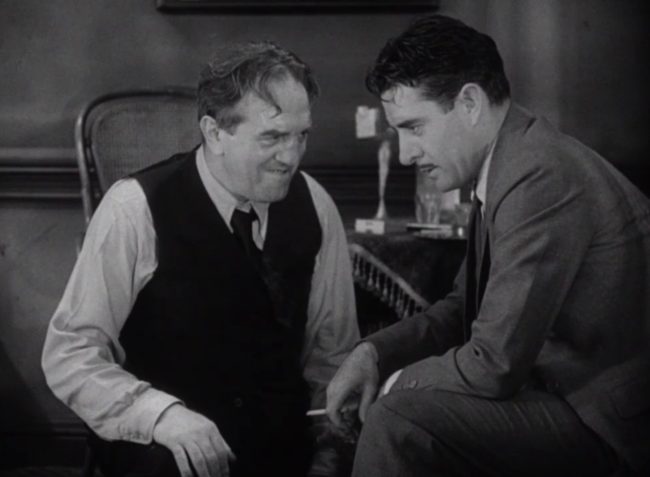
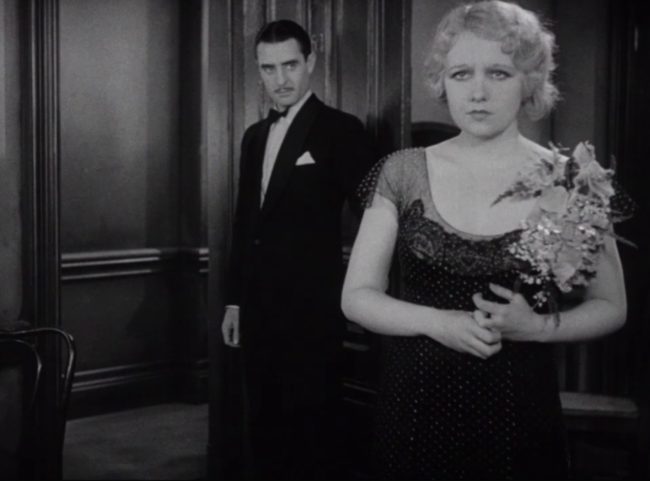
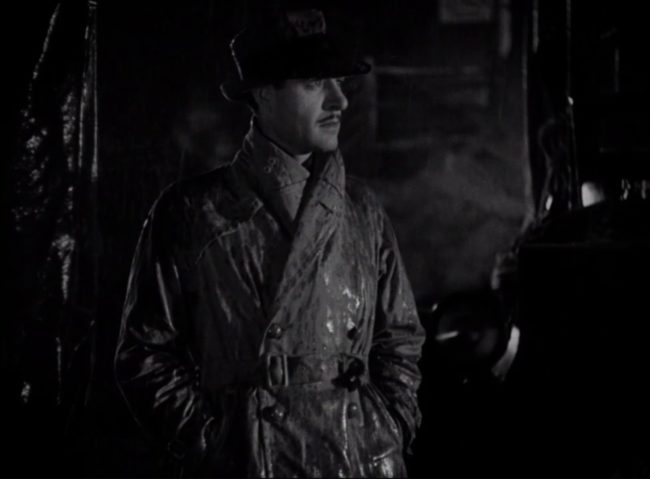



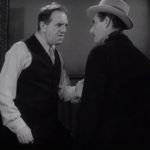




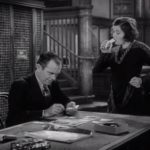
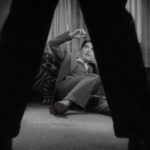





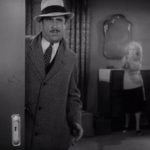




4 Comments
Veebs · June 28, 2017 at 6:15 am
THANKS FOR THIS! I had DVR’d this film and just finished watching it a couple days ago. Though I’m a massive John Gilbert fangirl, the one who really stood out to me here was Marie Prevost (dude! she’s Canadian!). She was an absolute joy to watch in every scene she was in!
Molly · June 28, 2017 at 6:39 am
So yes the story arc with this film definitely moves one way. Gilbert is never happier than in the first scene and it’s all downhill for the poor guy from there. Nice MacArthur Park reference. I’ve always preferred the original Richard Harris version 😉
Raquel Stecher (@QuelleLove) · June 28, 2017 at 8:19 am
I love that Vanessa sponsored this. Great review Danny!
brianpaige · June 28, 2017 at 9:53 am
The way Gilbert was scripted here makes him just seem so lame. If there’s one thing the public in 1931 didn’t want to see it was a guy brooding and being miserable as a gangster. If you watch Cagney, Robinson, early Gable…those guys were really commanding the screen and enjoying themselves. it’s hard to be charismatic when you’re a doomed guy due to circumstances.
This isn’t a bad movie, I’d probably say it would be indifferent with me. Gilbert’s ending speech is so cheesy and moralistic for a pre code outing.
Comments are closed.